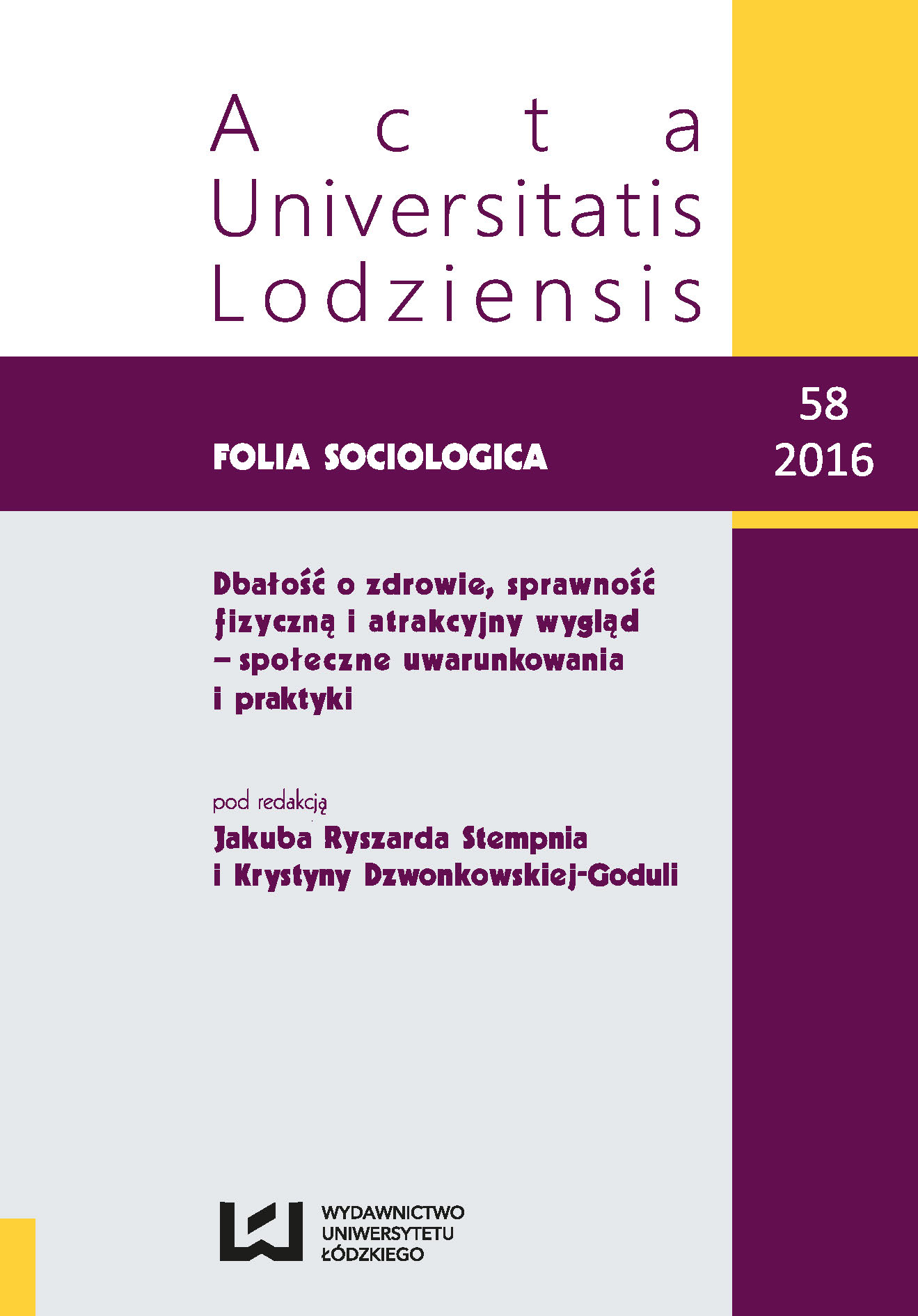Socio-demographic profile of participant of running event – the case study of Poznań Halfmarathon
DOI:
https://doi.org/10.18778/0208-600X.58.10Keywords:
halfmarathon, running, sport tourismAbstract
In many countries we are observing now an increase of fashion for running and in connection with the participation of athletes in various running events – marathons, halfmarathons, ultramarathons. Running events become recently an important stimulus to the development of sports tourism, now one of the fastest growing industries of leisure time. The aim of this article is to show who participates in running events in Poznań (the case study of Poznań Halfmarathon). The work on the basis of empirical studies conducted using diagnostic survey interview technique standardized defined socio-demographic profile of both athletes, who live in the city where the event is held and defined the profile of the runner – sports tourist.
References
Deery M., Jago L., Fredline L. (2004), Sport Tourism or Event Tourism: Are They One and the Same?, “Journal of Sport Tourism”, Vol. 9, No. 3, s. 235–245.
Google Scholar
Dzięgiel A., Lubowiecki-Vikuk A. (2013), Imprezy biegowe jako specyficzny rodzaj wydarzeń sportowych, „Turystyka i Rekreacja”, nr 2 (12), s. 123–133.
Google Scholar
Gammon S., Robinson T. (1997), Sport and tourism: a conceptual framework, “Journal of Sport Tourism”, Vol. 4, No. 3, s. 21–26.
Google Scholar
Gaworecki W.W. (2010), Turystyka, Państwowe Wydawnictwo Ekonomiczne, Warszawa.
Google Scholar
Gibson H., Attle S., Yiannakis A. (1998), Segmenting the sport tourist market: A lifespan perspective, “Journal of Vacation Marketing”, s. 12.
Google Scholar
Gibson H. (1998), Active Sport Tourism: Who Participate?, “Leisure Studies”, s. 155‒179.
Google Scholar
Hadzik A. (2014), Turystyka sportowa ze szczególnym uwzględnieniem międzynarodowych widowisk sportowych, Wydawnictwo AWF, Katowice.
Google Scholar
Korzewa L., Miziołek E., Skarbowska A. (2014), Turystyka biegowa w Polsce według opinii uczestników biegów masowych, „Rozprawy Naukowe Akademii Wychowania Fizycznego we Wrocławiu”, nr 45.
Google Scholar
Kszak-Krzyżanowska A. (2013), Turystyka biegowa w Polsce, „Handel Wewnętrzny”, t. 1: Turystyka i rekreacja w rozwoju cywilizacyjnym, s. 283–286.
Google Scholar
Poczta J. (2014), Wartości społeczne turystyki wydarzeń sportowych (studium przypadku), [w:] M. Zowisło, J. Kosiewicz (red.), Sport i turystyka w zwierciadle wartości społecznych, Wydawnictwo AWF, Kraków.
Google Scholar
Roberts Ch. (2011), Sport and Adventure Tourism, [w:] P. Robinson, S. Heitmann, P. Dicke (red.), Research Themes for Tourism, CABI, Oxfordshire–Cambridge, s. 146–159.
Google Scholar
Ross D. (2001), Developing Sports Tourism, National Laboratory for Tourism, University of Illinois, Champaign (Chapter: What are the characteristics of sport tourists?).
Google Scholar
Shipway R., Jones I. (2007), Running away from home: understanding visitor experiences and behaviour at sport tourism events, “International Journal of Tourism Research”, Vol. 9, No. 5.
Google Scholar
DOI: https://doi.org/10.1002/jtr.641
Stempień J.R. (2016), Bieganie, zwiedzanie i klasa średnia – przygarść socjologicznych uwag i obserwacji o turystyce biegowej, [w:] M. Kazimierczak (red.), Inspiracje sportem w turystyce kulturowej, Wydawnictwo AWF, Poznań.
Google Scholar
Waśkowski Z. (2015), Społeczno-ekonomiczne determinanty rozwoju turystyki sportowej na przykładzie biegów maratońskich, www.researchgate.net/publication/282003309 [dostęp: 25.09.2016].
Google Scholar
Zauhar J. (2003), Historical Perspectives of Sport Tourism, [w:] S. Hudson (red.), Sport and Adventure Tourism, Haworth Hospitality Press, Binghampton.
Google Scholar
Downloads
Published
How to Cite
Issue
Section
License

This work is licensed under a Creative Commons Attribution-NonCommercial-NoDerivatives 4.0 International License.










